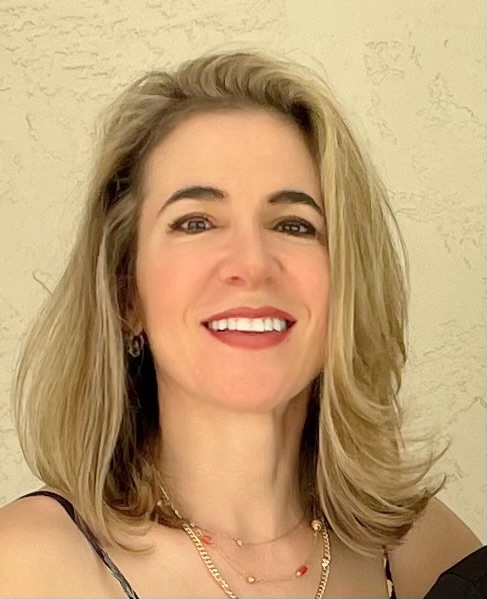Marisol's Story

“I Did Not Want to Leave My Kids Like My Mom Had Left Me”
When I was 8 years old, my mom died of ovarian cancer at 51 years old. Before she was diagnosed with ovarian cancer, she had survived breast cancer. Sadly, most of my memories of her are of when she was sick. I am the youngest of six siblings, so my sisters and brothers pretty much raised me after my mother’s death. I always had this cancer threat looming over my head while growing up.
As I got older, I saw several older cousins on my mom’s side diagnosed with cancer around their forties. In 1998, my cousin told us about genetic testing and suggested our family should get tested. I had no other information about genetic testing. At the time, I was living in Mexico and I was in my twenties. My thoughts were, “Getting tested is not an option, so why think about it and worry? There’s not much I can do.” So I tried to ignore them, but the thoughts were always in the back of my mind.
Fast forward about ten years to 2009, and I was living in the United States. I was at my gynecologist’s office after my routine mammogram following the birth of my second son. The gynecologist told me I had calcifications due to breastfeeding, but I heard “cancer.” We talked about my family history and again the doctor suggested I should get genetic testing.
I was now ready to get tested and learn about my options. I did not want to leave my kids like my mom had left me. The results came back, and the report said, “Positive for BRCA1.” I realized I wasn’t ready to receive these results. Even though I already knew there was a strong family history and I witnessed my mom suffer through breast and ovarian cancer, I was still in shock when I received this news.
I decided to educate myself. I found a wonderful community in a nonprofit organization called FORCE. To this day, I am proud to say I am still a part of this community and organization. First I was a constituent going to their conference, and later I became a volunteer. With the information and resources I received from FORCE, I understood my options, made decisions, and became my own advocate.
After my genetic test, I knew I had to inform my family members of my results. My brothers and sisters got tested right after I did. I also contacted all my maternal relatives. Some have been very receptive and gotten tested; some just politely listen to what I have to say. I can now read the cues and know when they’ve had enough. I remind my family that I am always around if/when they are ready or want more information.
I am lucky I have the privilege of information and accessibility. I have learned that giving the information to others without helping with future additional steps is not so helpful. I usually go an extra step and find out where they can get tested in their area and what the costs are, so after we have a conversation I can also provide this information. I have realized that if I do not go this extra step, they’ll put it in the back of their mind and forget about it or, worse, just worry about it and feel helpless, just like me when I started my journey.
When I was growing up, there weren’t as many options, information, or websites available. I felt very alone. I also got frustrated when people asked if my hair was going to fall out. I would say, “I don’t have cancer. These surgeries are preventive.” They would look at me with a confused face. Some would say the classic Mexican saying “Te estas poniendo el huarache antes de espinarte,” which basically means “You’re overreacting.”
Every couple of years there are advances and discoveries. I am hopeful that in time my kids and future grandkids will have better options than I did because my choices (removal of body parts, early menopause, etc.) still seem a bit barbaric. I am very grateful that I am about to pass my mom’s age when she left this world, and, with a little luck, I will stick around with my kids for a long time.
